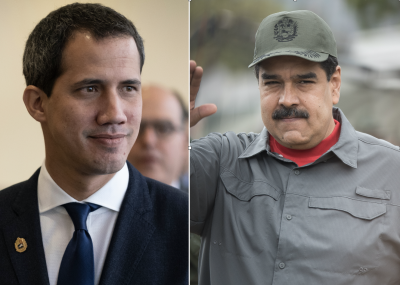Facing the Failure of Our Cruel Venezuela Policy
After four years of failure and worsening hardship for the Venezuelan people, there may now be a chance for a serious rethinking of this policy.

All Global Research articles can be read in 51 languages by activating the Translate Website button below the author’s name.
To receive Global Research’s Daily Newsletter (selected articles), click here.
Follow us on Instagram and Twitter and subscribe to our Telegram Channel. Feel free to repost and share widely Global Research articles.
***
Venezuelan opposition legislators voted last week to dissolve their interim government, and with that they have ended the project of trying to replace Maduro with Juan Guaidó:
But nearly four years later and with little to show for the effort, the experiment has come to an end. On Friday, the opposition lawmakers who once rallied behind Guaidó voted 72-29 to dissolve their so-called interim government, effectively ending his mandate.
This was a long overdue move. Guaidó never had control of anything outside the National Assembly in Venezuela, and eventually he didn’t really have control over that. The U.S. made a major mistake in trying to foment regime change in Venezuela, and the backing of Guaidó was a perfect example of why the policy never made any sense. The entire policy has been an exercise in wishful thinking and reckless meddling from the start. After four years of failure and worsening hardship for the Venezuelan people, there may now be a chance for a serious rethinking of this policy.
Dumping Guaidó was a necessary move, but it was one that should have been done years ago. Following almost four years of ineffective efforts to dislodge Maduro, Guaidó’s standing with the Venezuelan people was terrible. According to one recent survey, his approval rating was 5% and only 6% of Venezuelans would vote for him as a candidate for president. All the time that was spent offering him up as the alternative and “legitimate” president of Venezuela was a waste, and now the opposition will be back more or less to square one with even less political capital and goodwill than they had before. It will take years to repair the damage done by being so openly aligned with the U.S. economic war that has been waged against Venezuela, and that can’t really begin until the economic war is brought to an end.
The Biden administration has begun taking very modest steps towards altering sanctions on Venezuela, but it needs to move much faster and go much further if sanctions relief is going to help the population. Keeping broad sanctions in place primarily punishes ordinary Venezuelans, and there can be no doubt about that at this point. No country has ever been democratized by being subjected to grueling collective punishment, and collective punishment will just make things worse for the people while Maduro clings to and tightens his hold on power. Our government’s policy aggravates the problems of food insecurity and poverty with economic coercion, and it is both morally indefensible and politically stupid.
The pro-sanctions theory that “maximum pressure” would force the Maduro government to crack and collapse has been tested and proven false. The U.S. will have to deal with Maduro as the de facto president for the foreseeable future, and it will have to acknowledge that its latest regime change attempt failed. Venezuela policy is a cautionary tale of what happens when the U.S. pays too much heed to ideological exiles, sets unrealistic goals, and uses the blunt instrument of sanctions to try to achieve far-reaching political goals. The U.S. must overhaul its Venezuela policy so that it is no longer focused on coercion and punishment, and that means ending broad sectoral sanctions. That may or may not help end the country’s political crisis, but it will at least stop making its economic and humanitarian crises worse than they already were.
*
Note to readers: Please click the share buttons above. Follow us on Instagram and Twitter and subscribe to our Telegram Channel. Feel free to repost and share widely Global Research articles.
Featured image is from Alexandros Michailidis/StringerAl/Shutterstock

